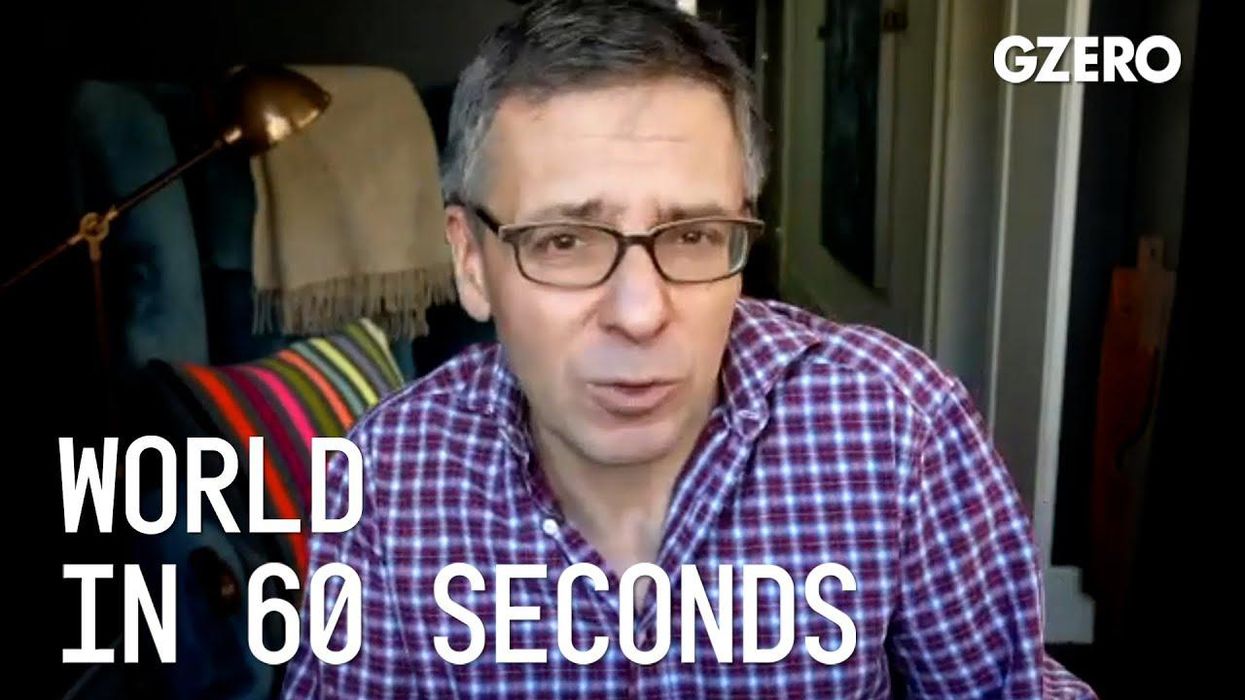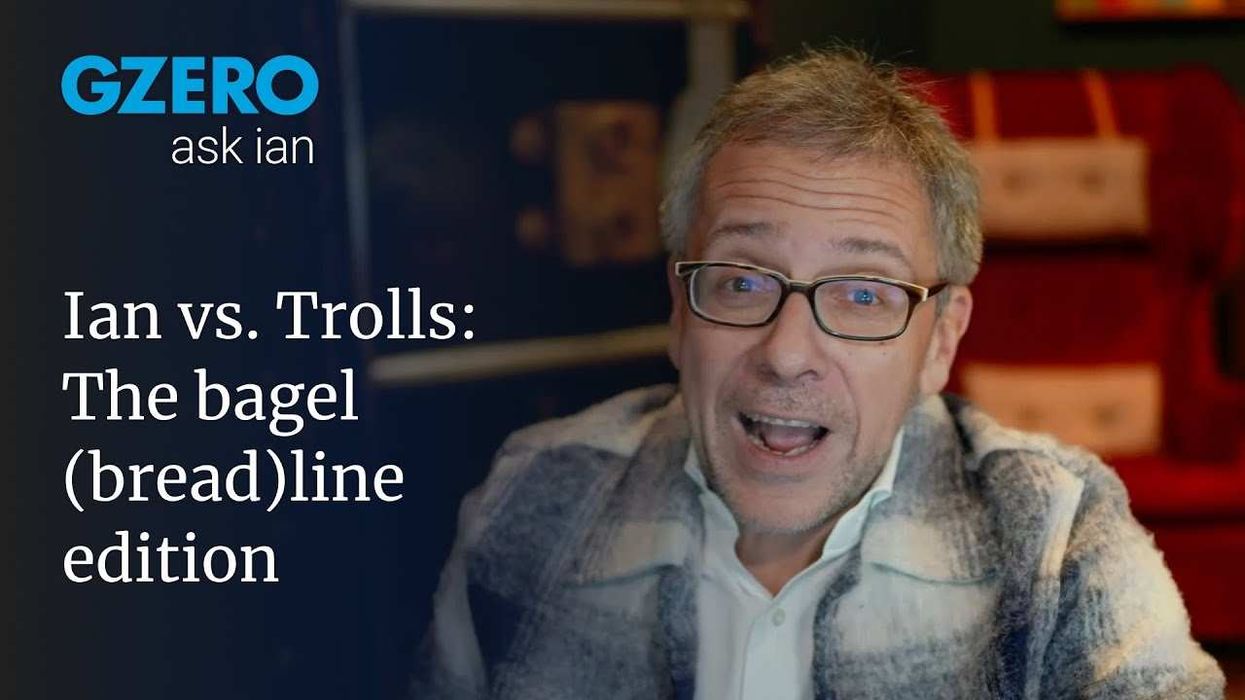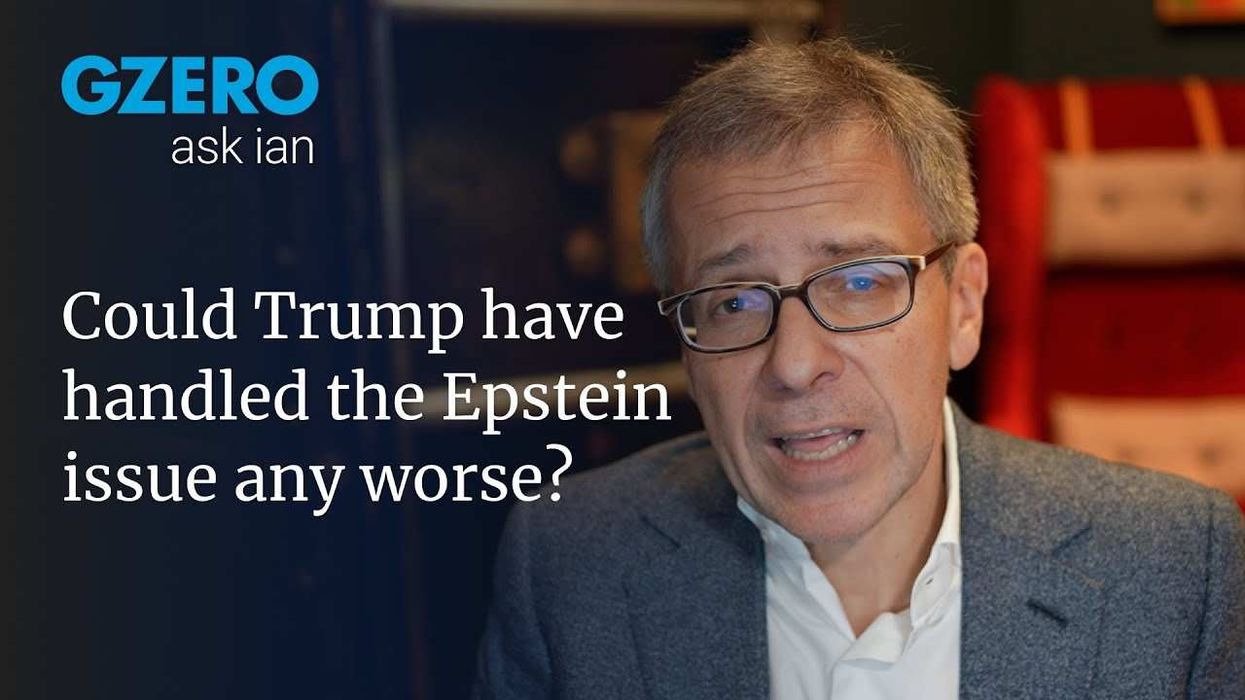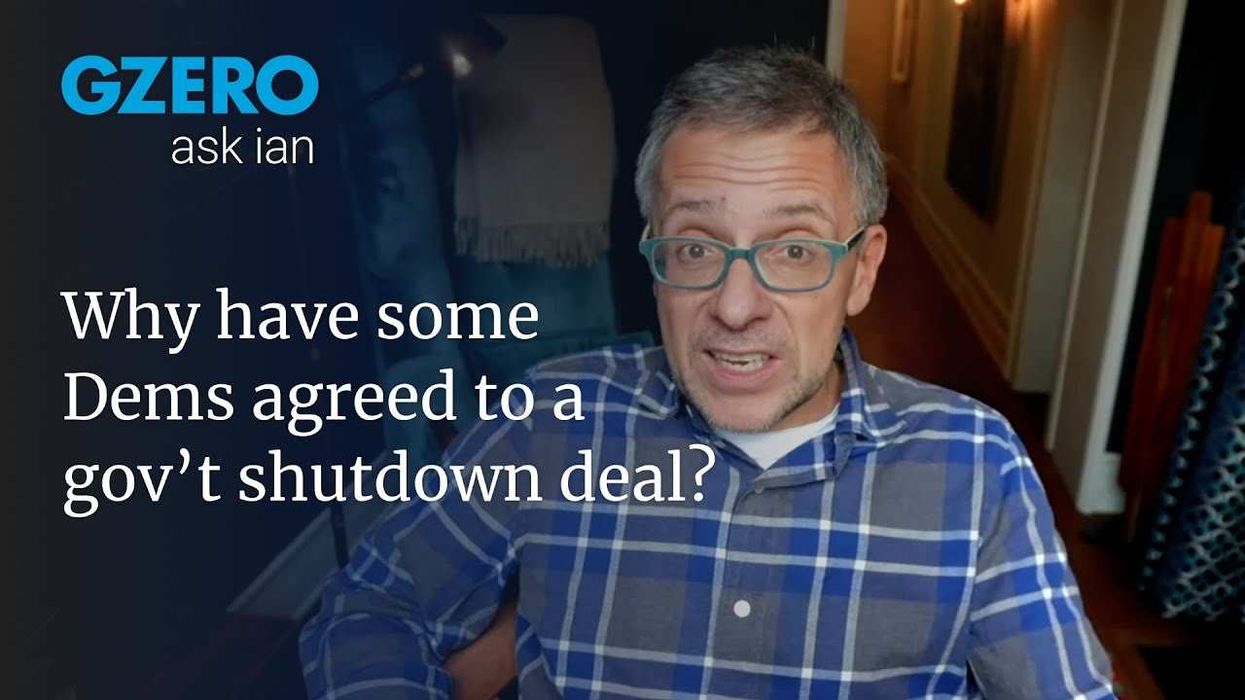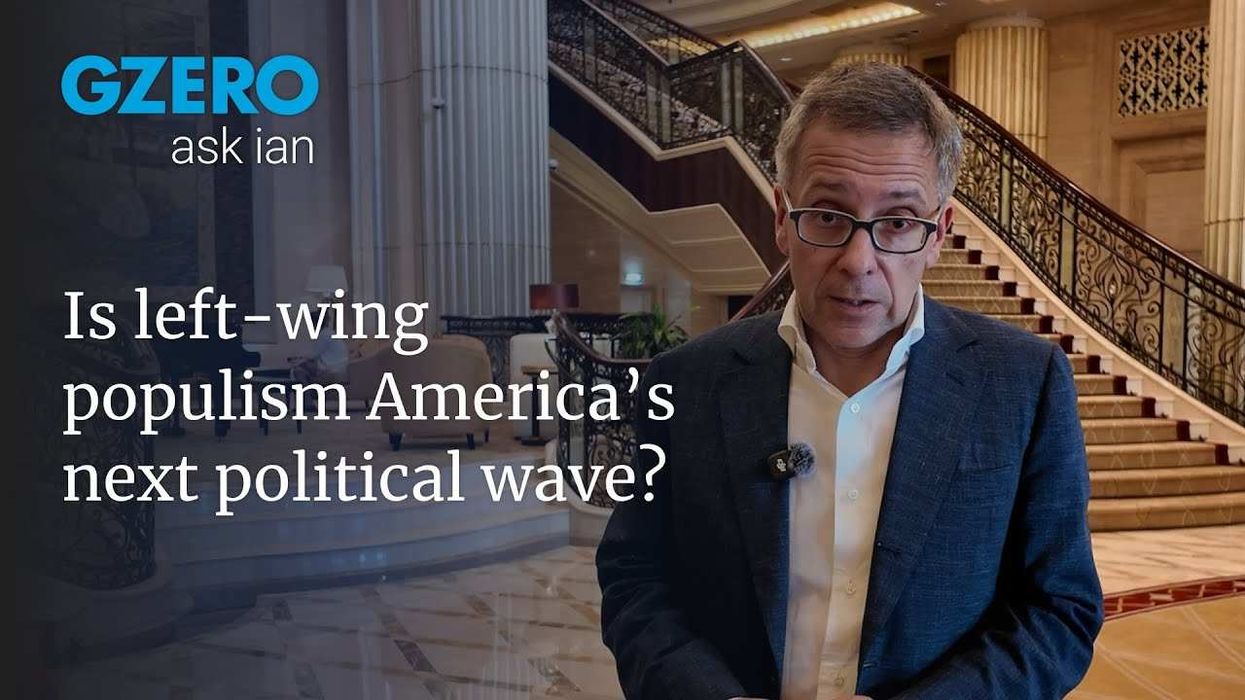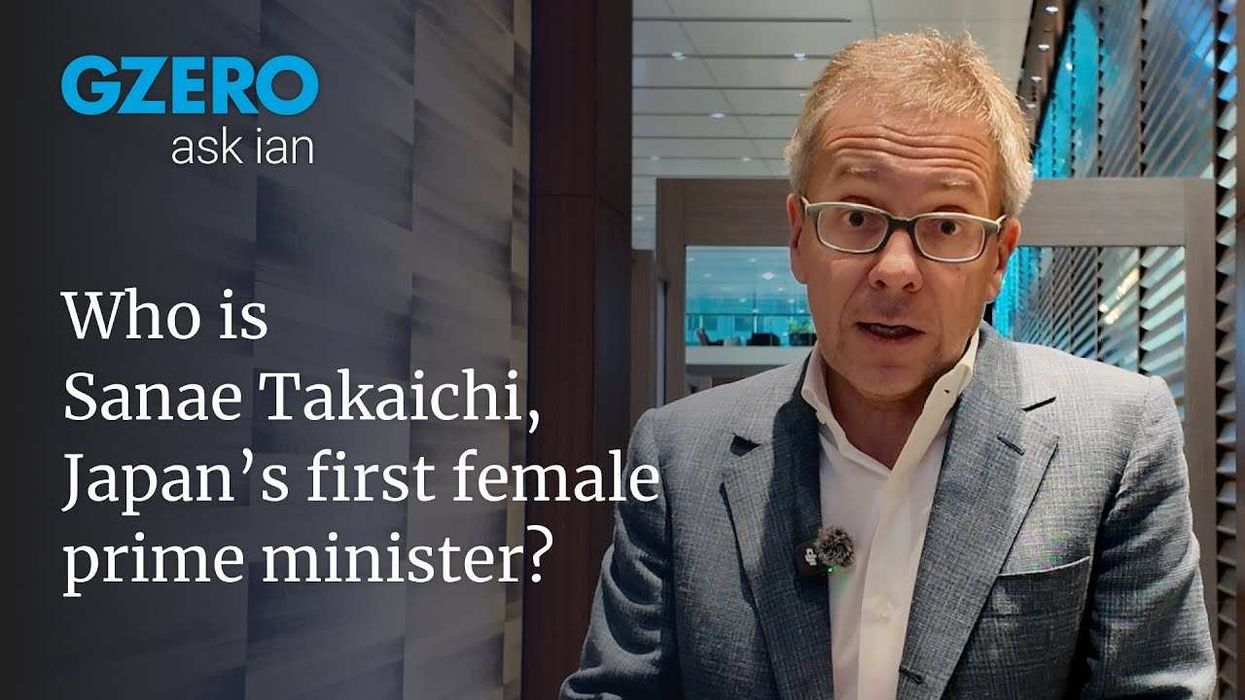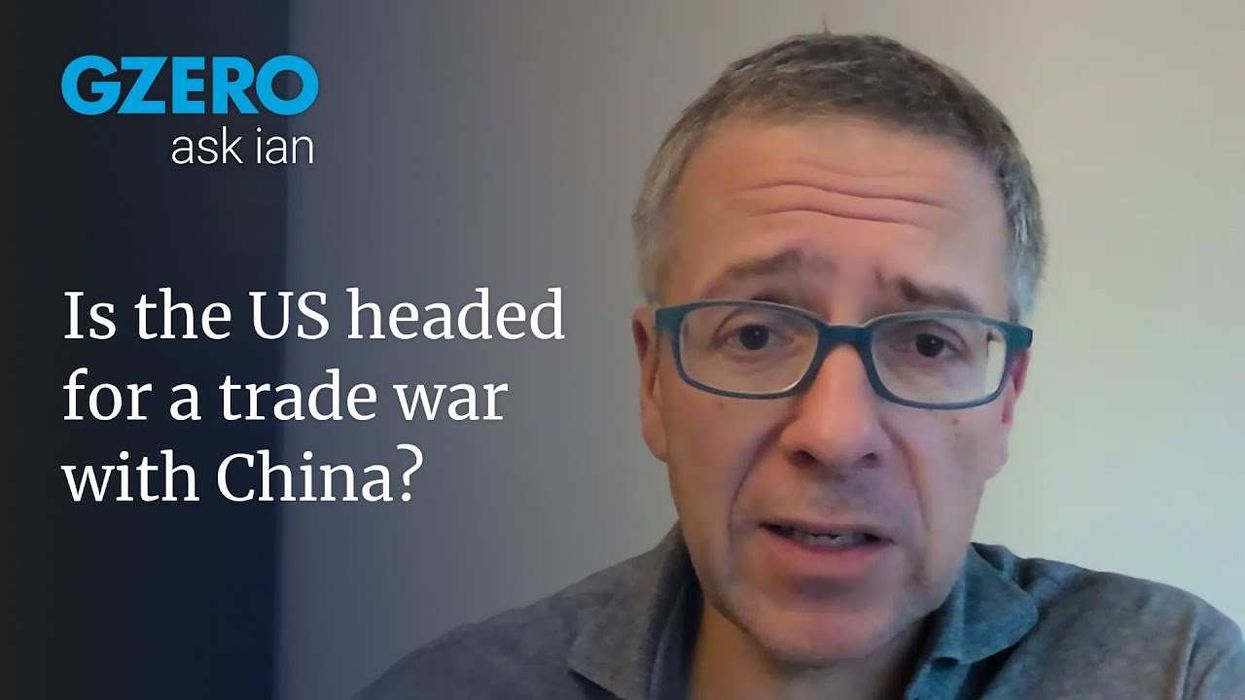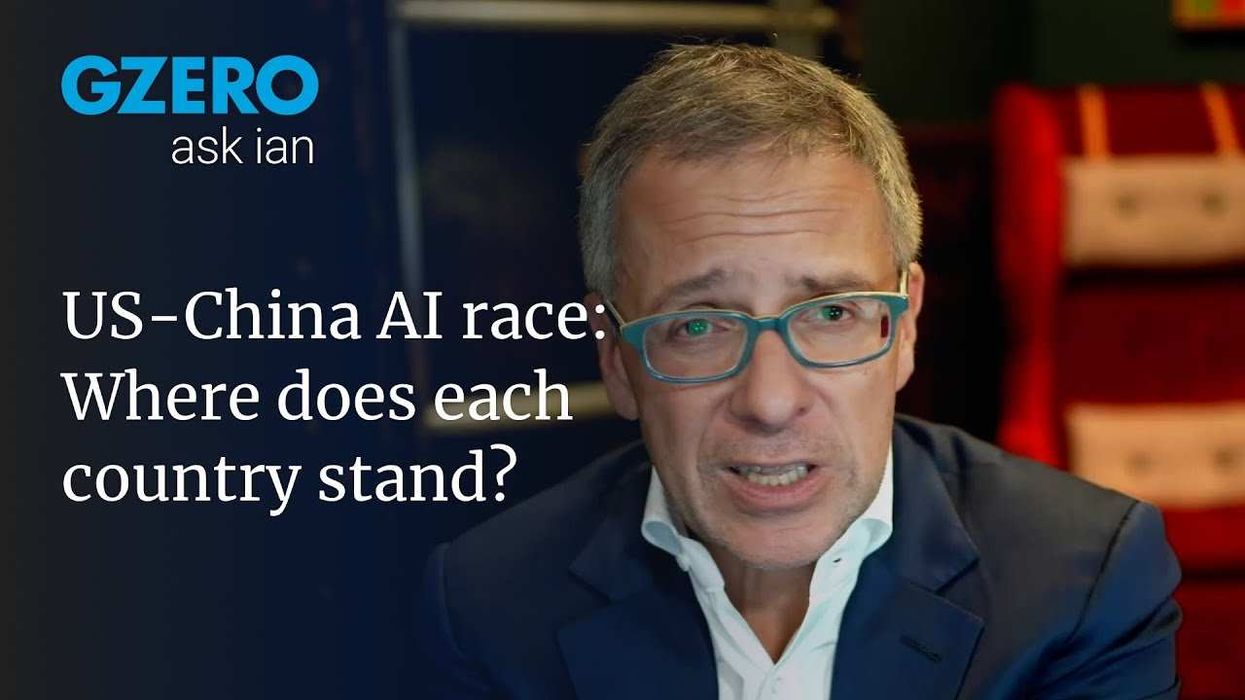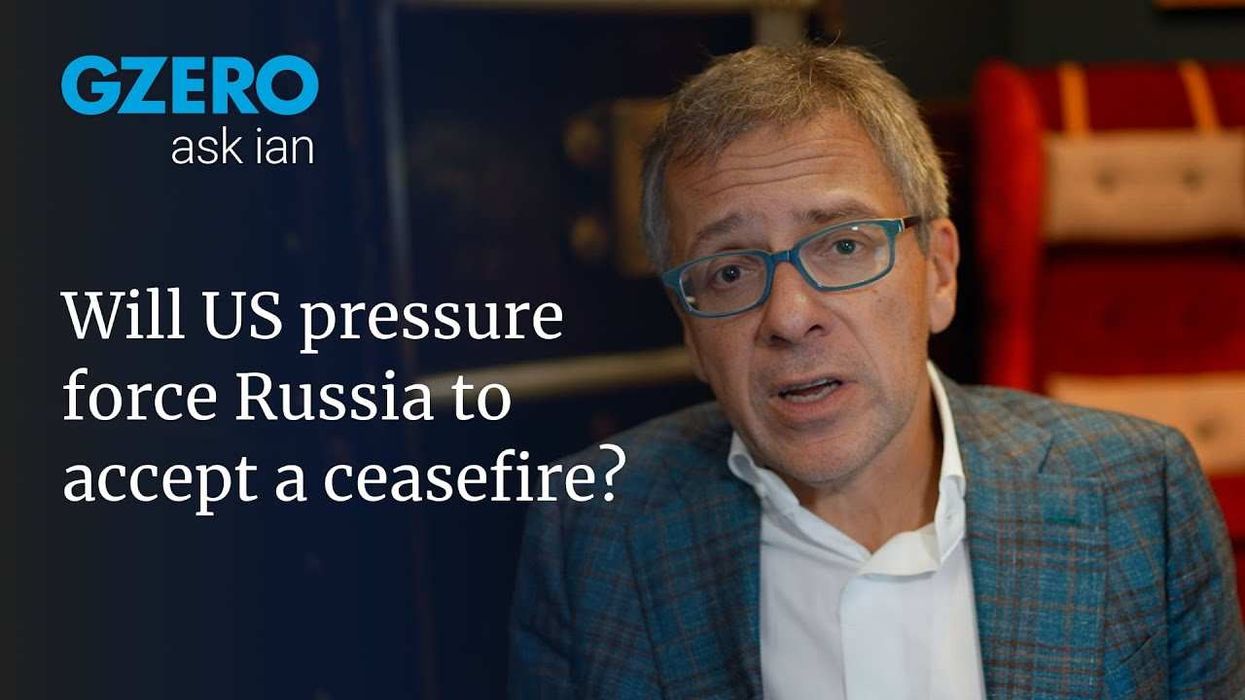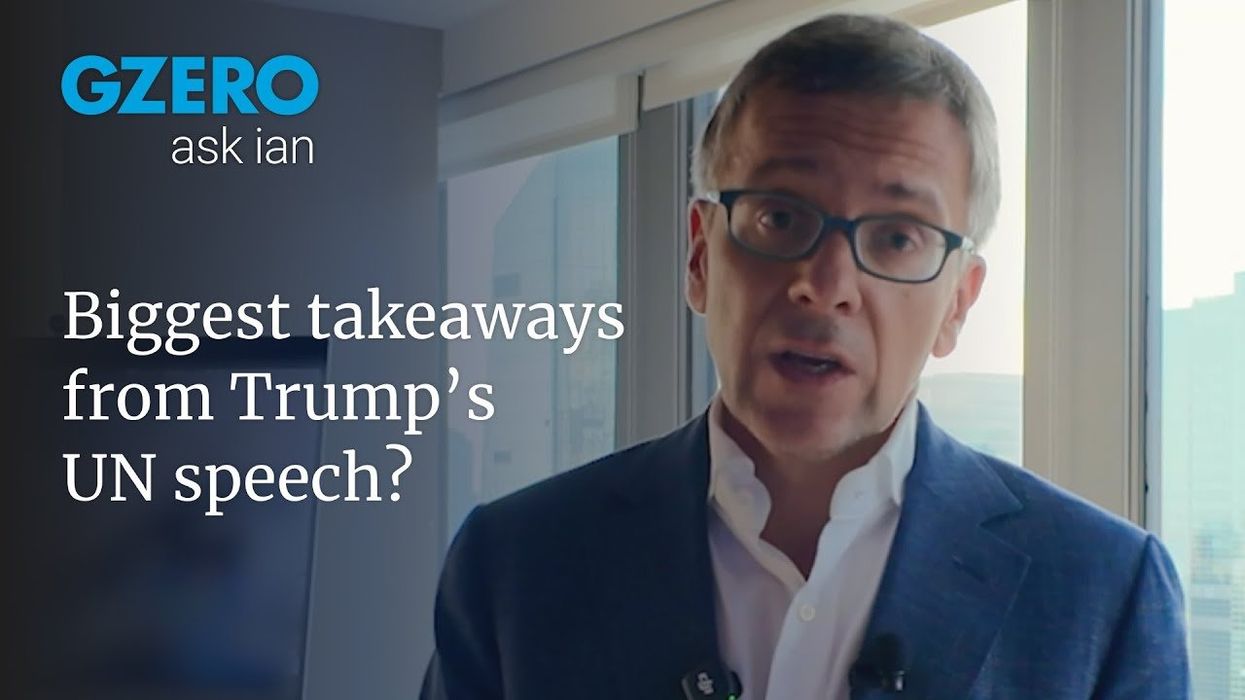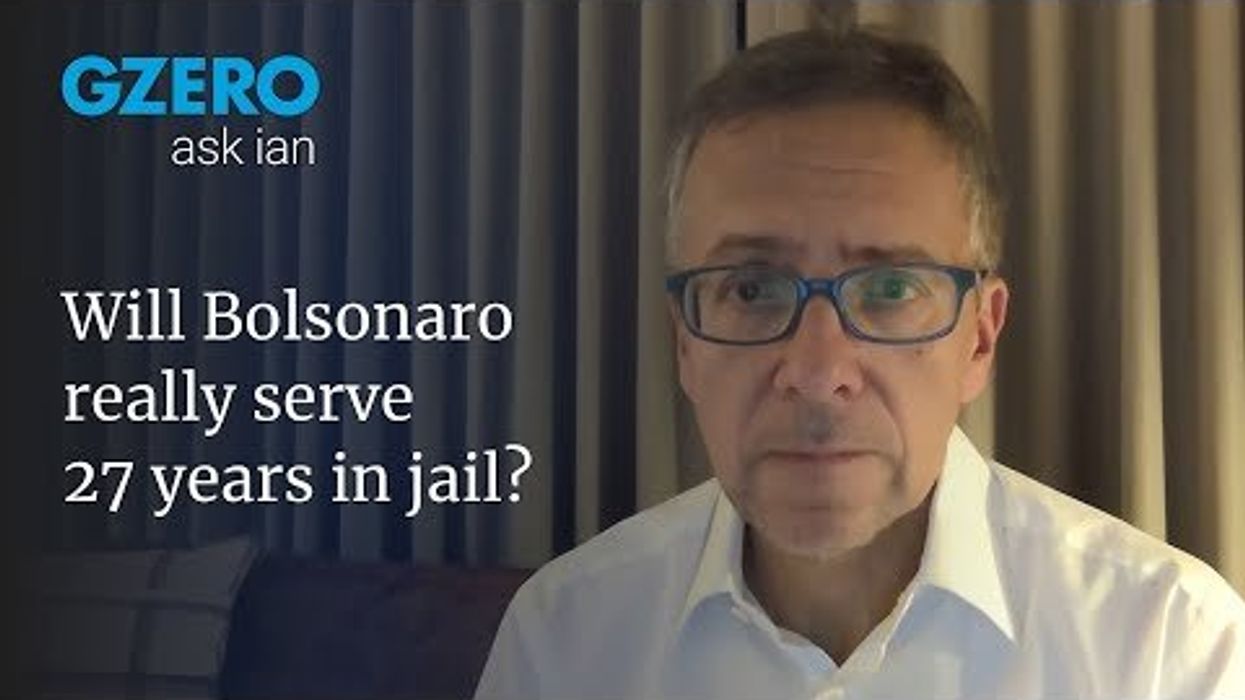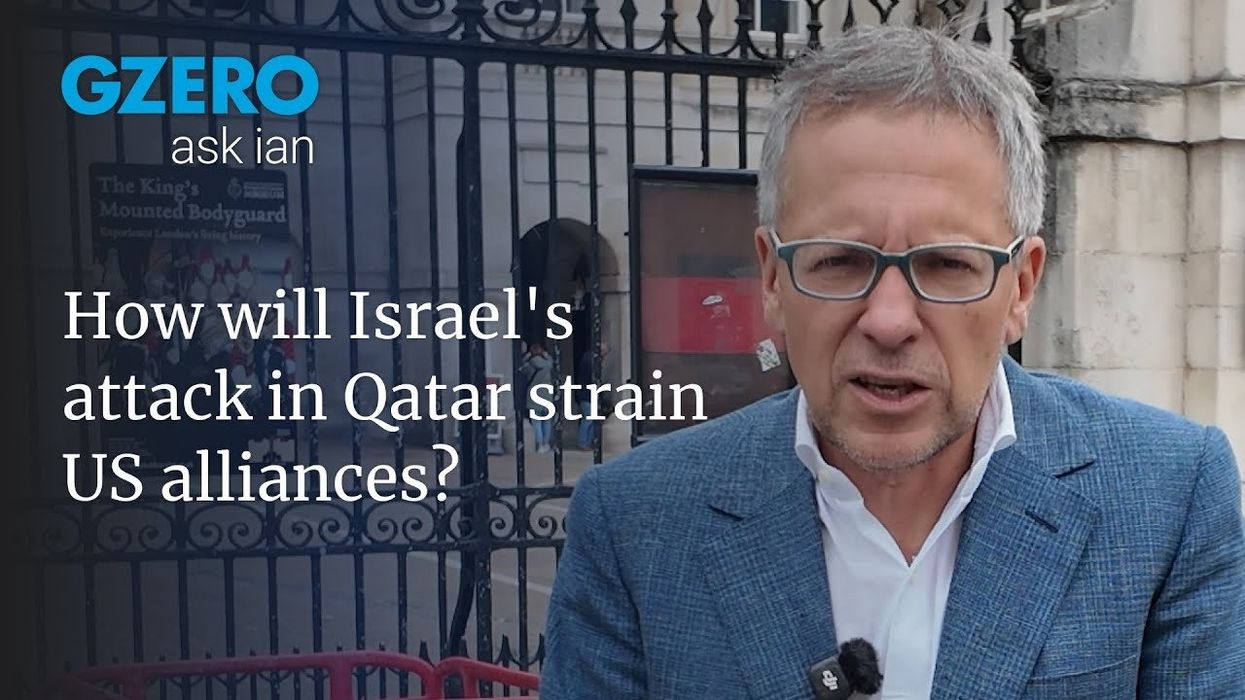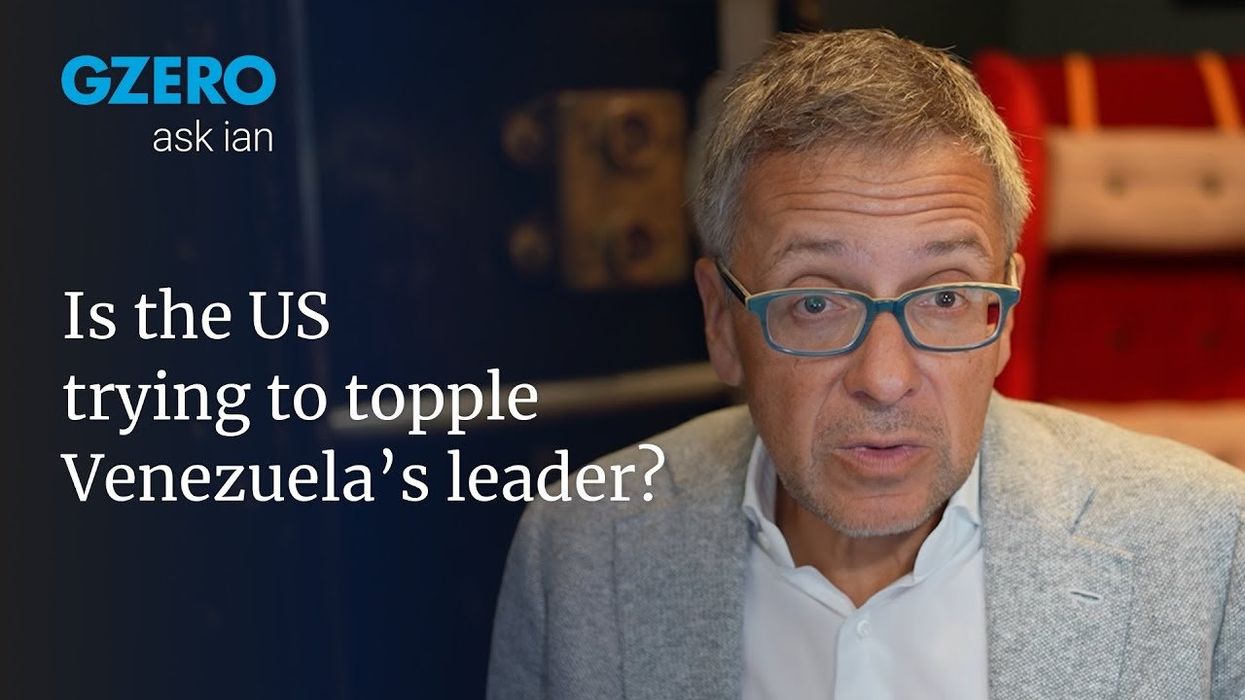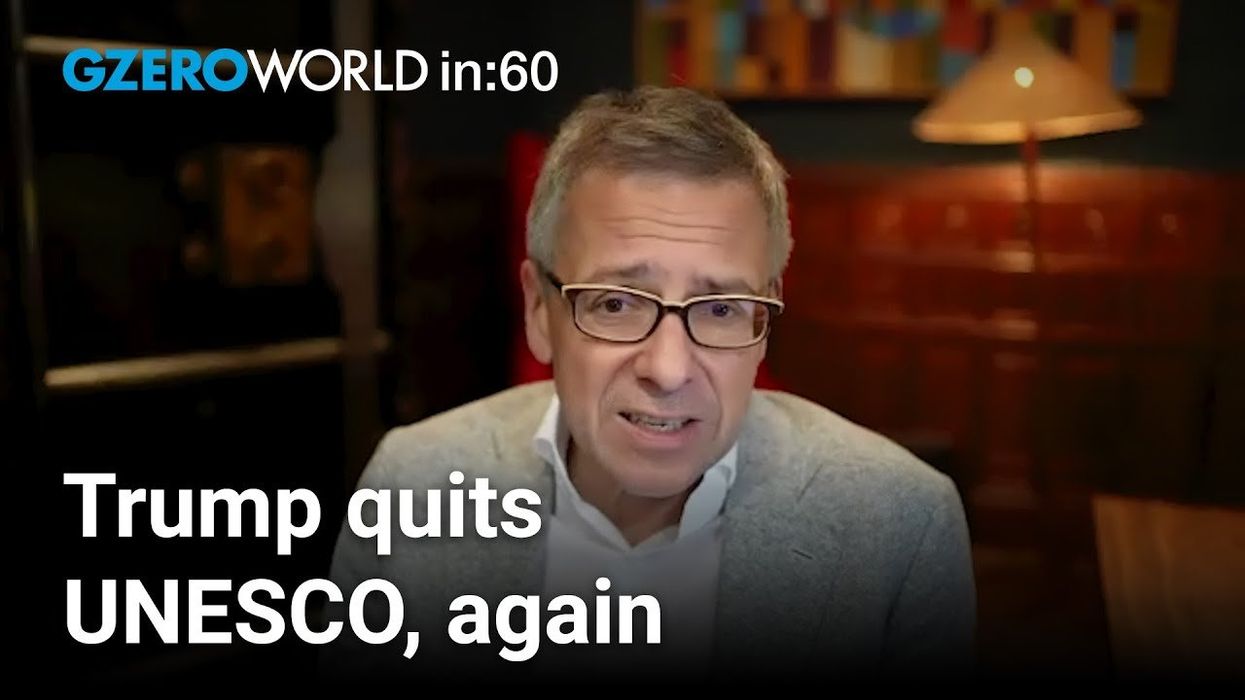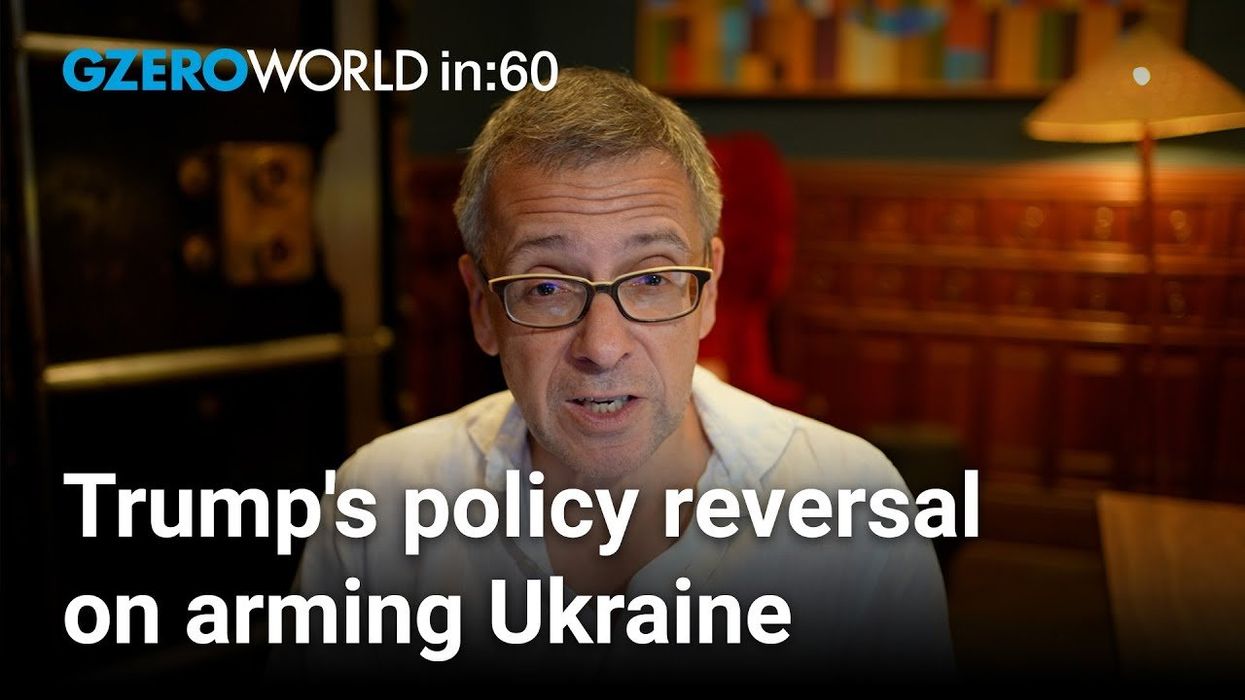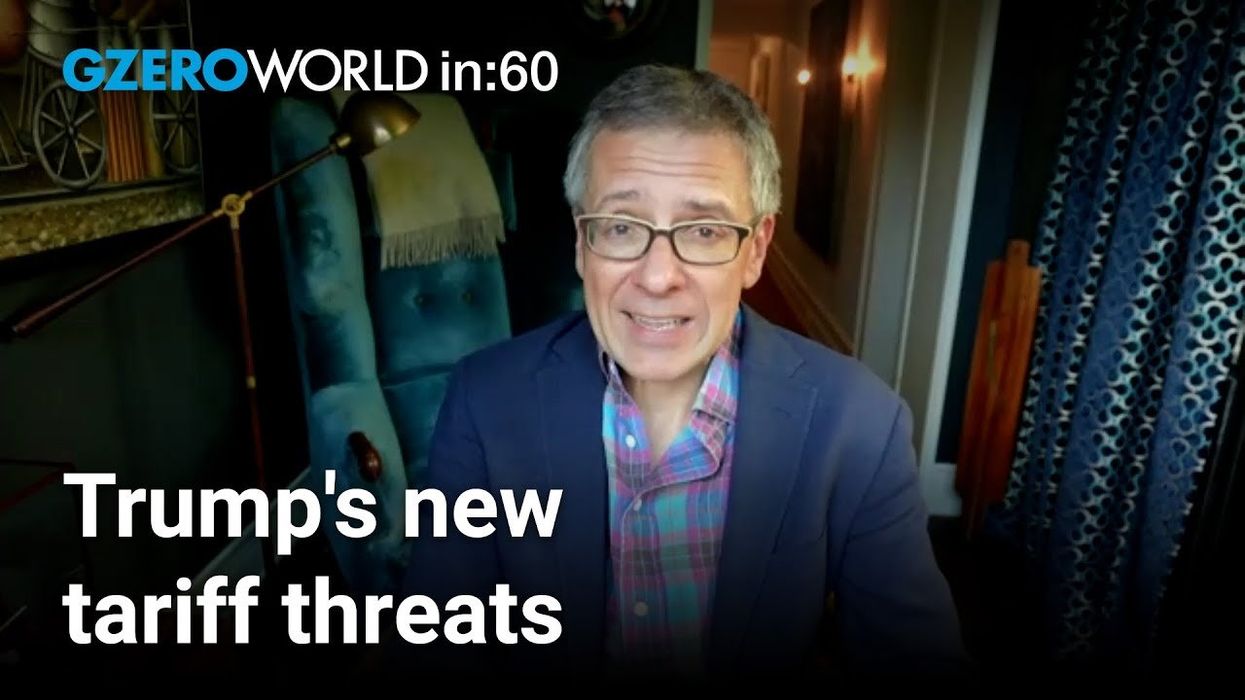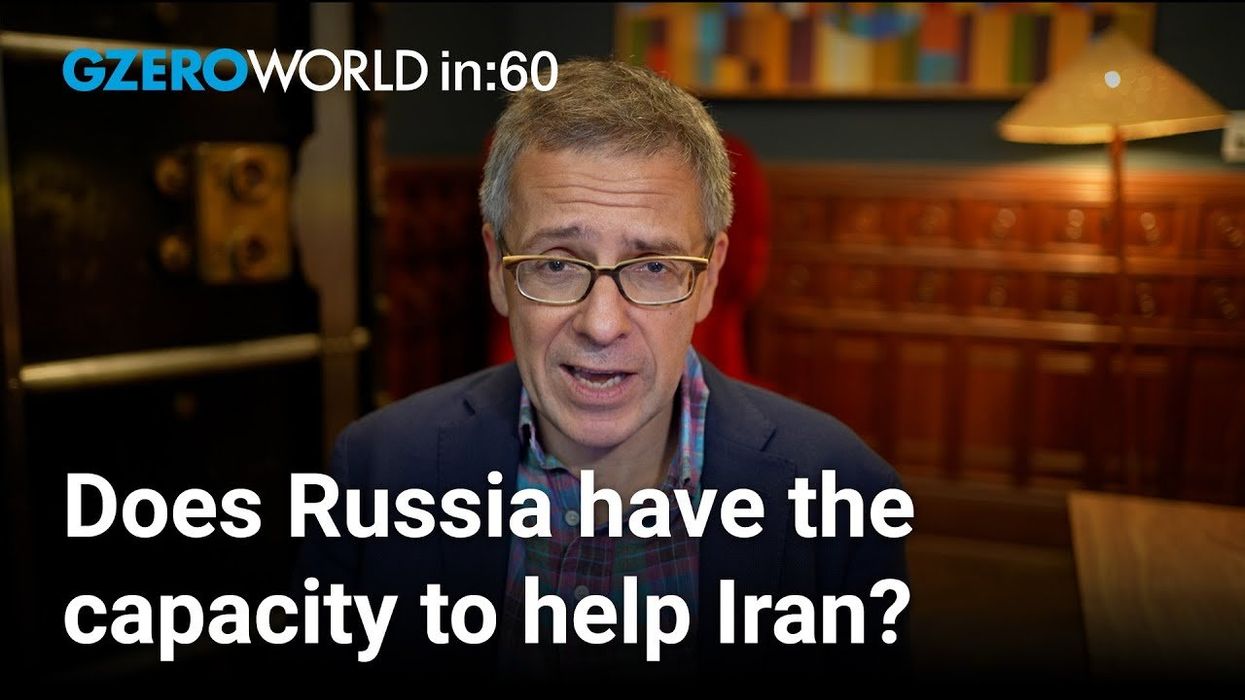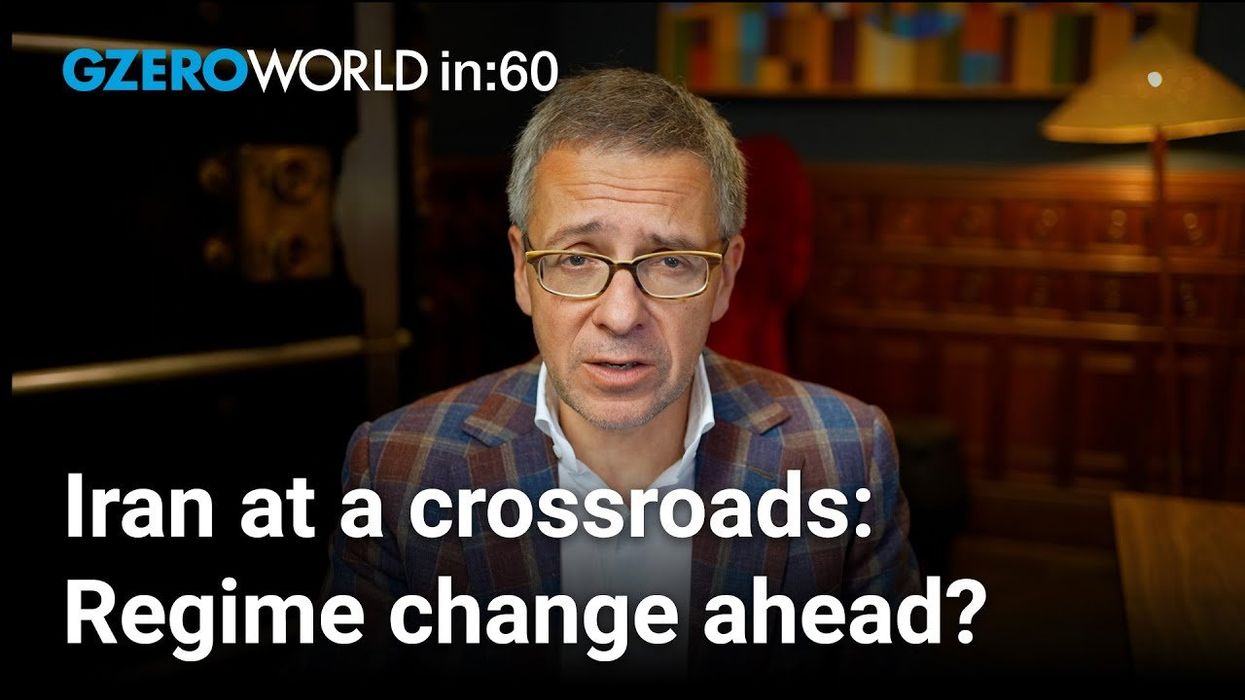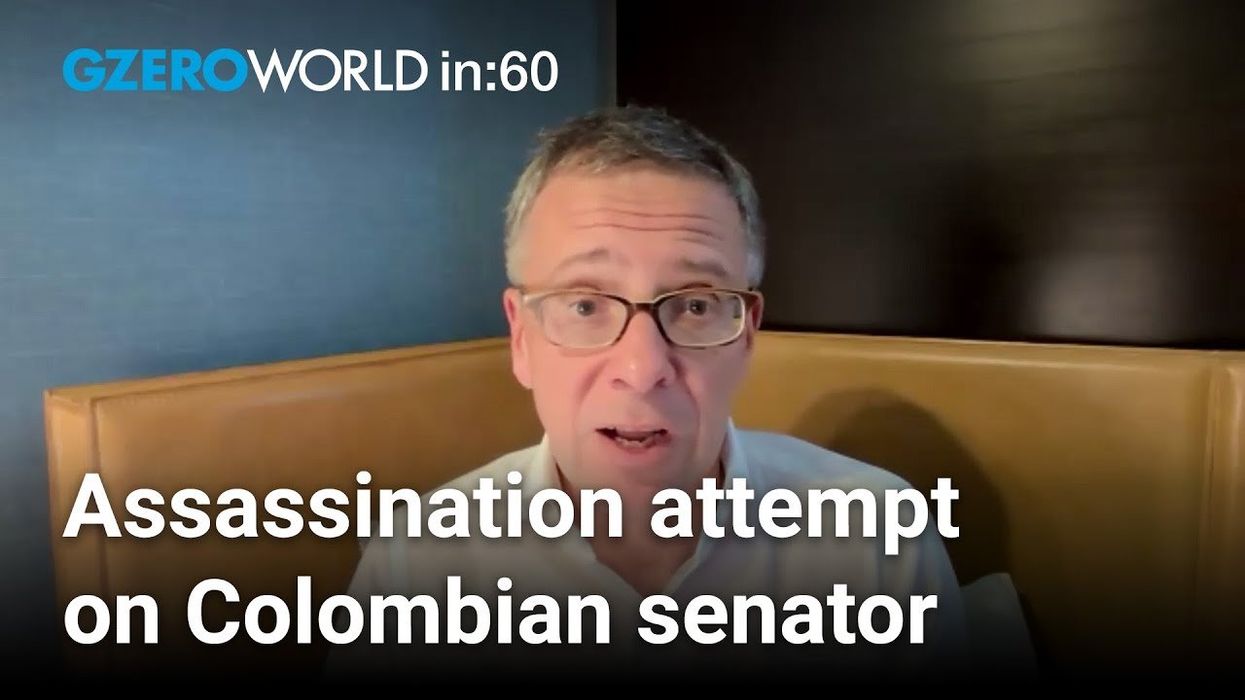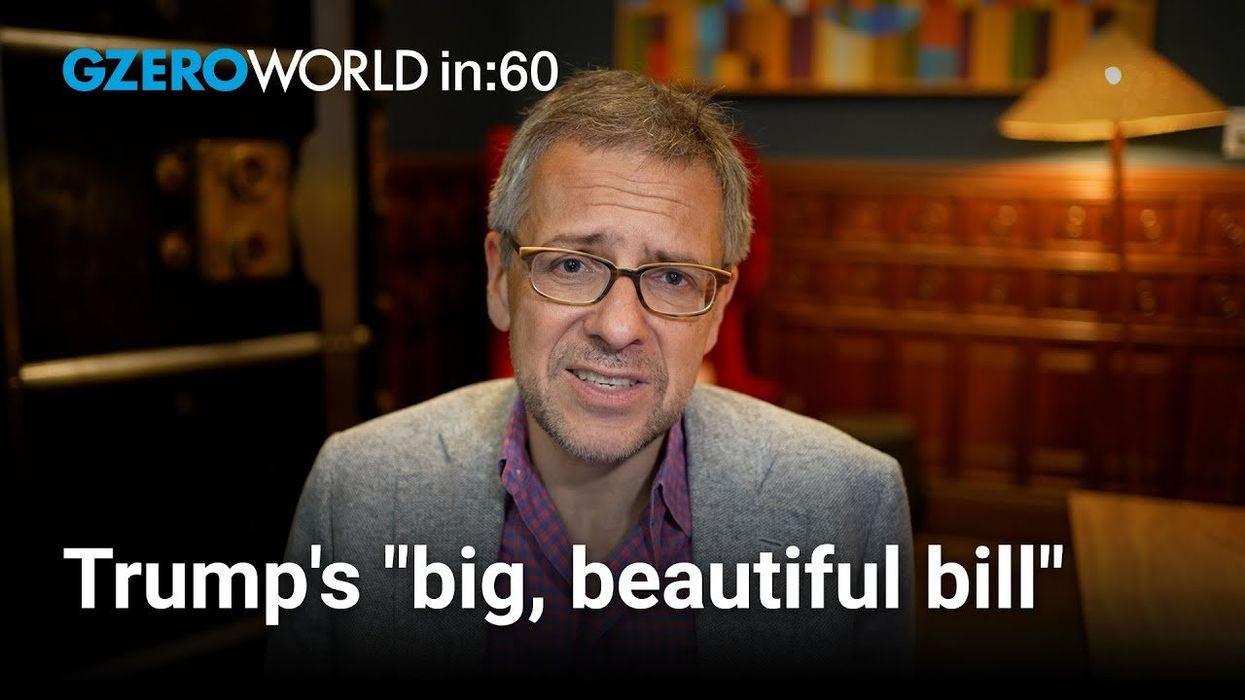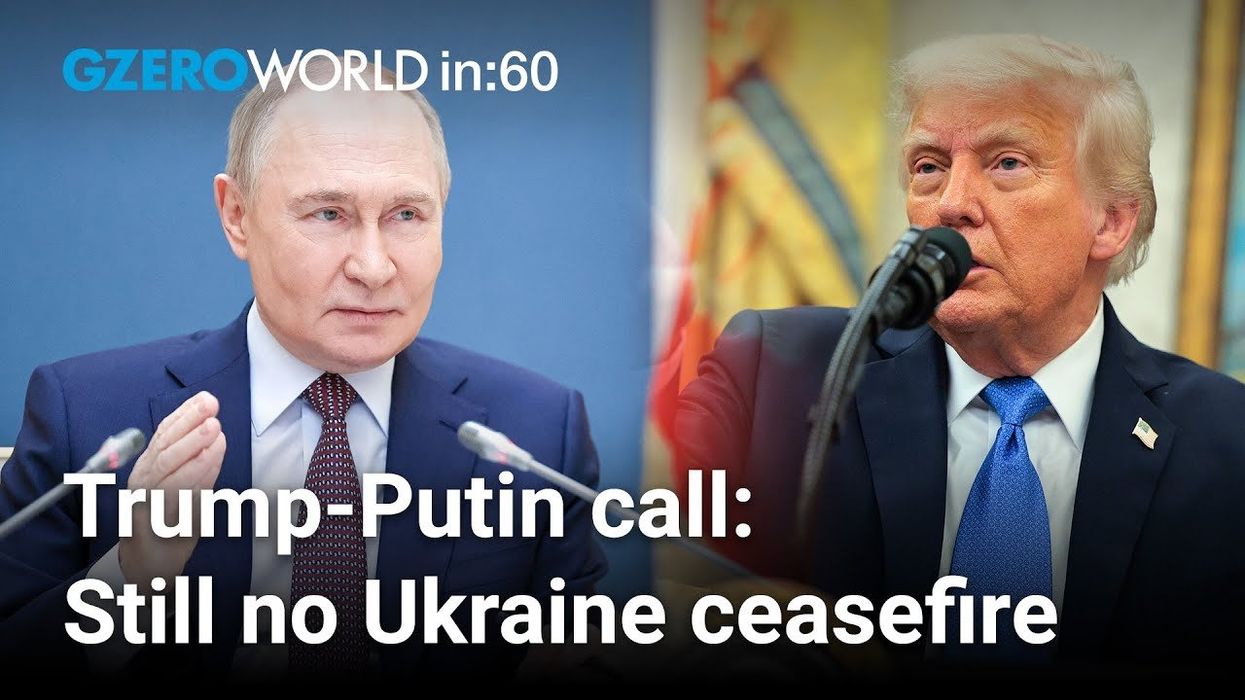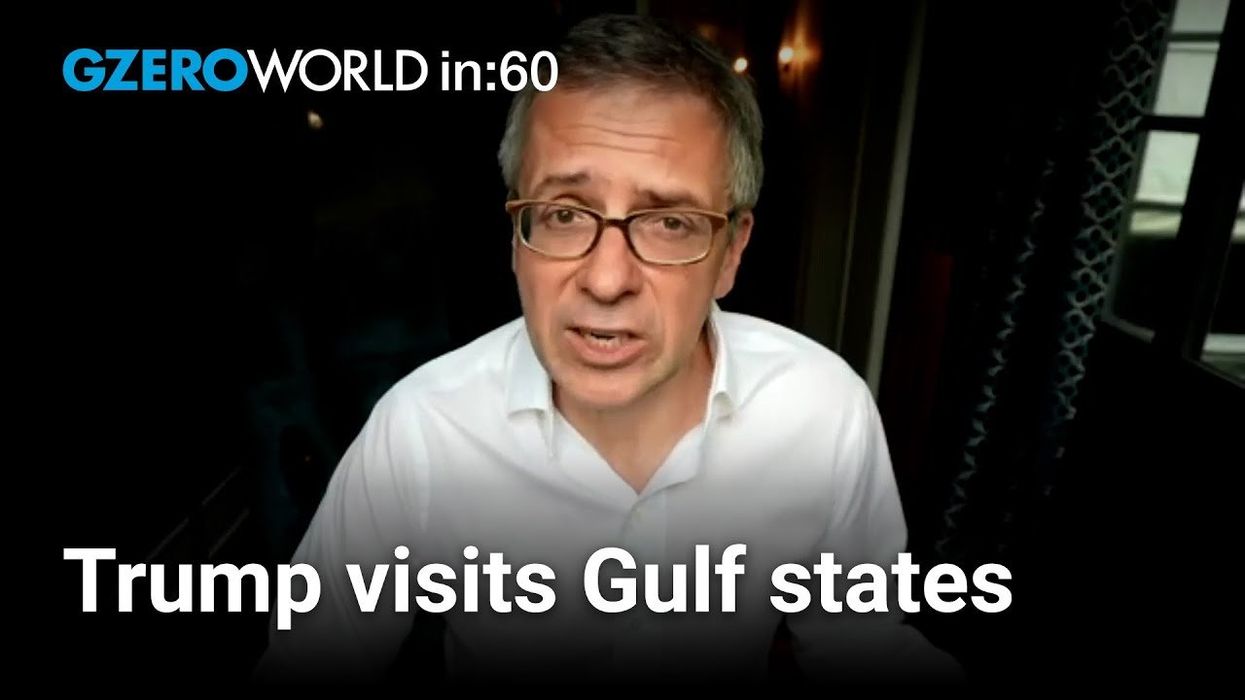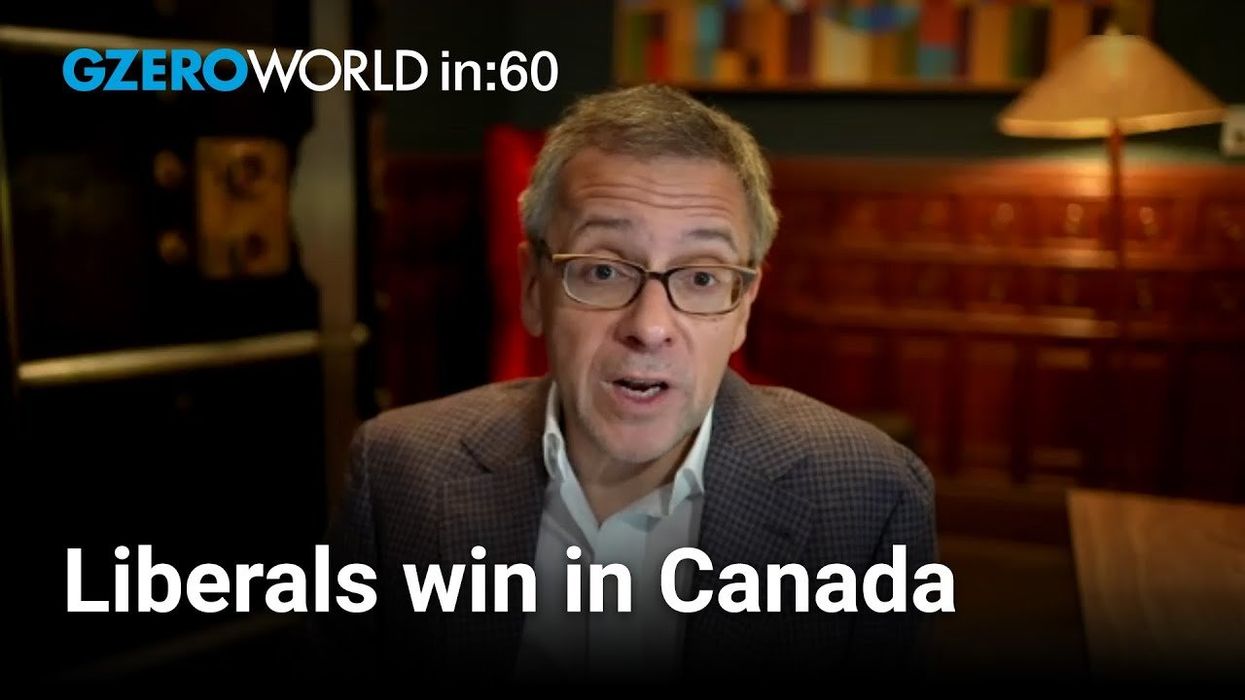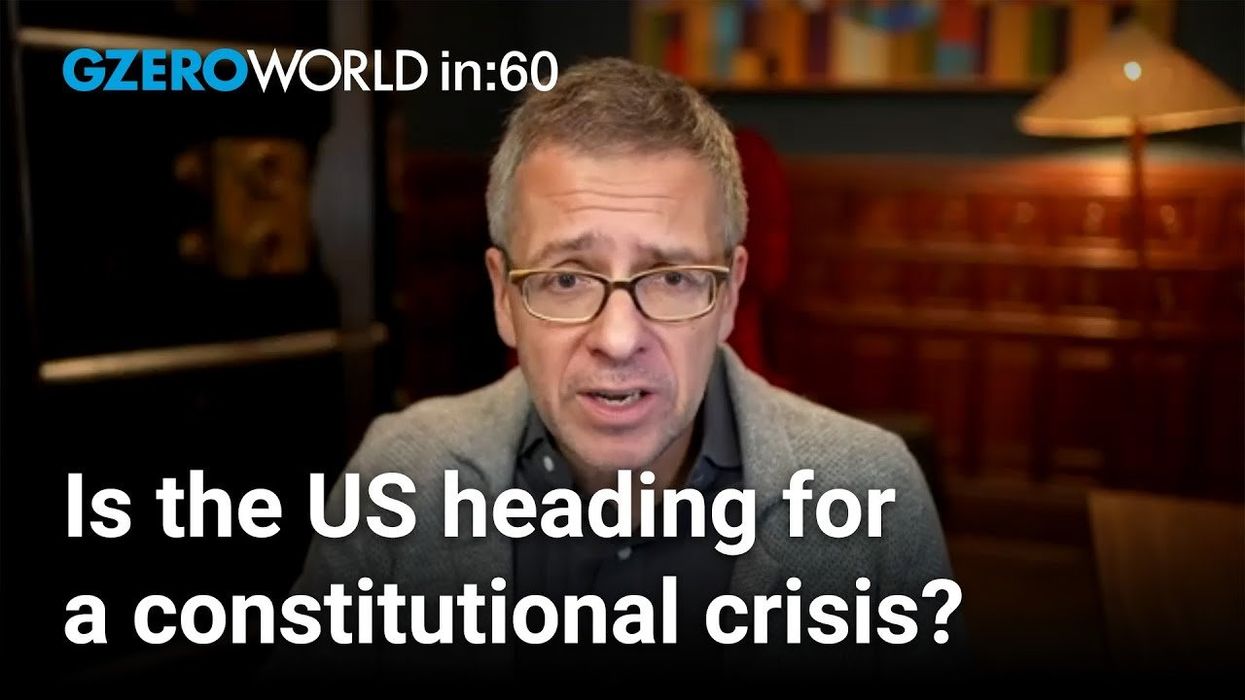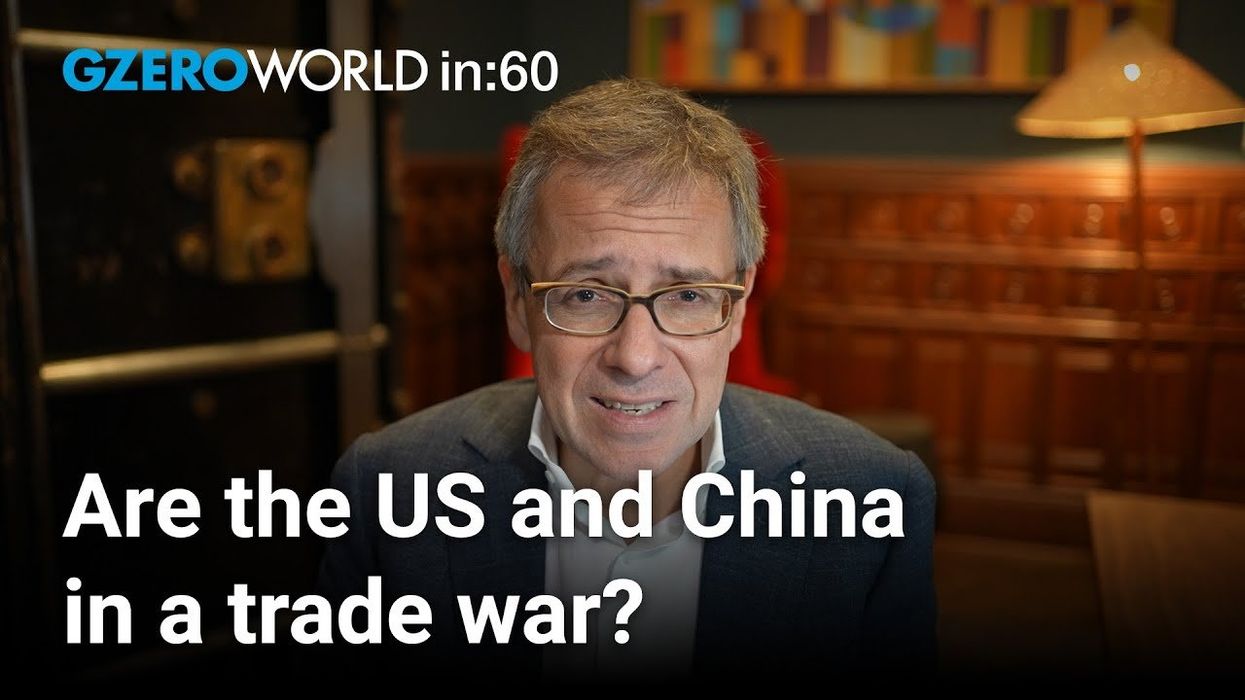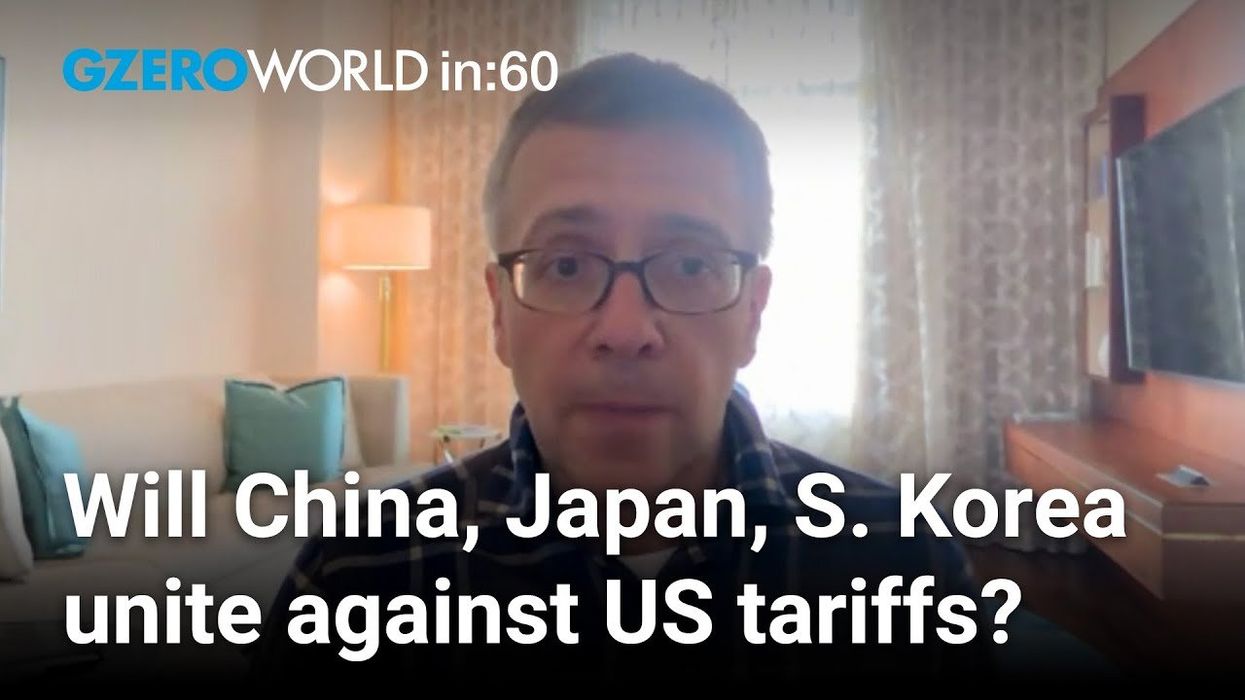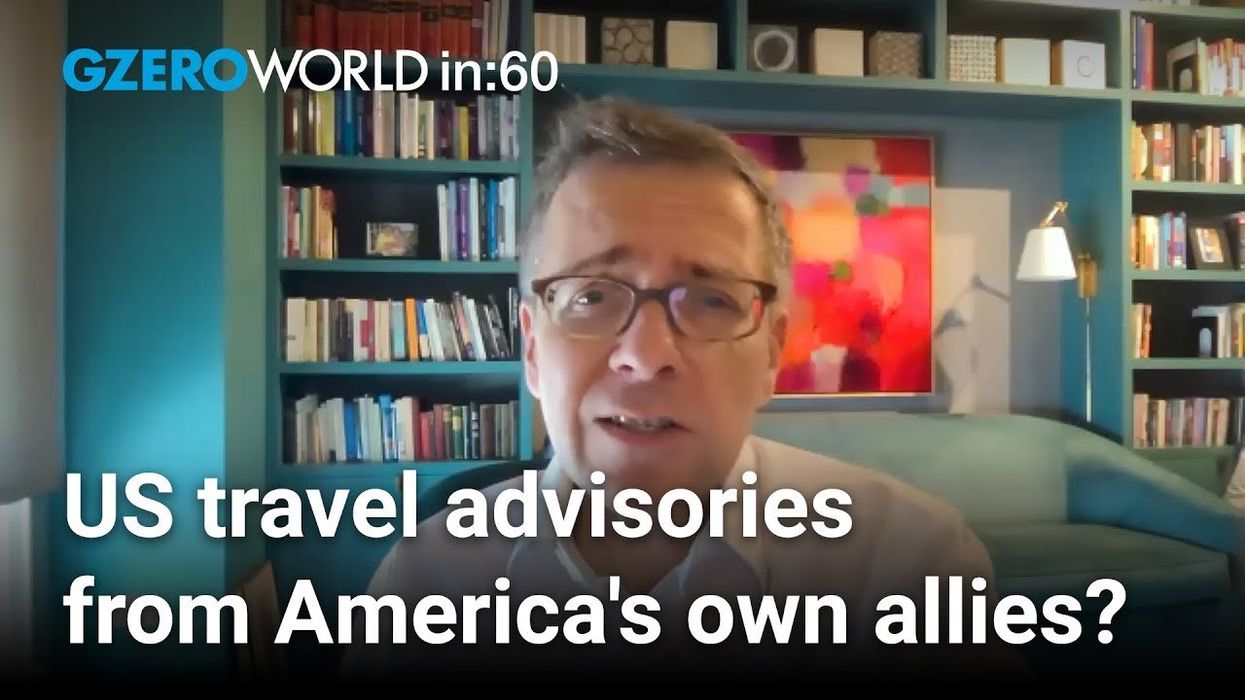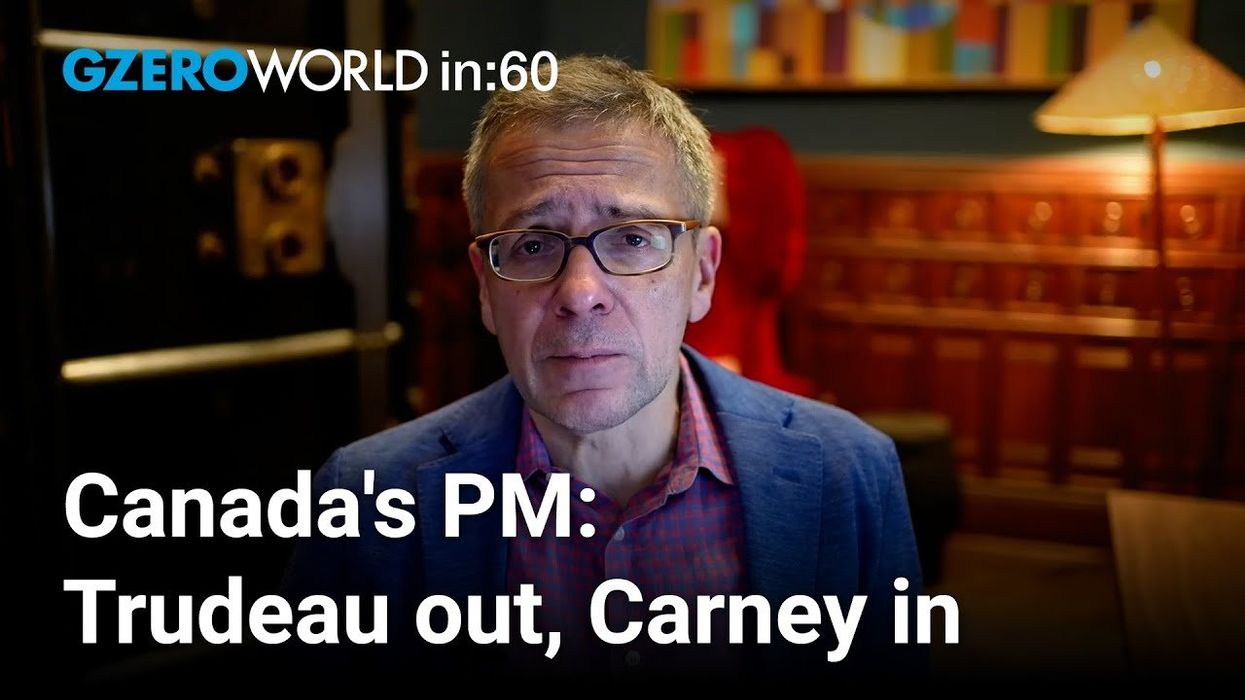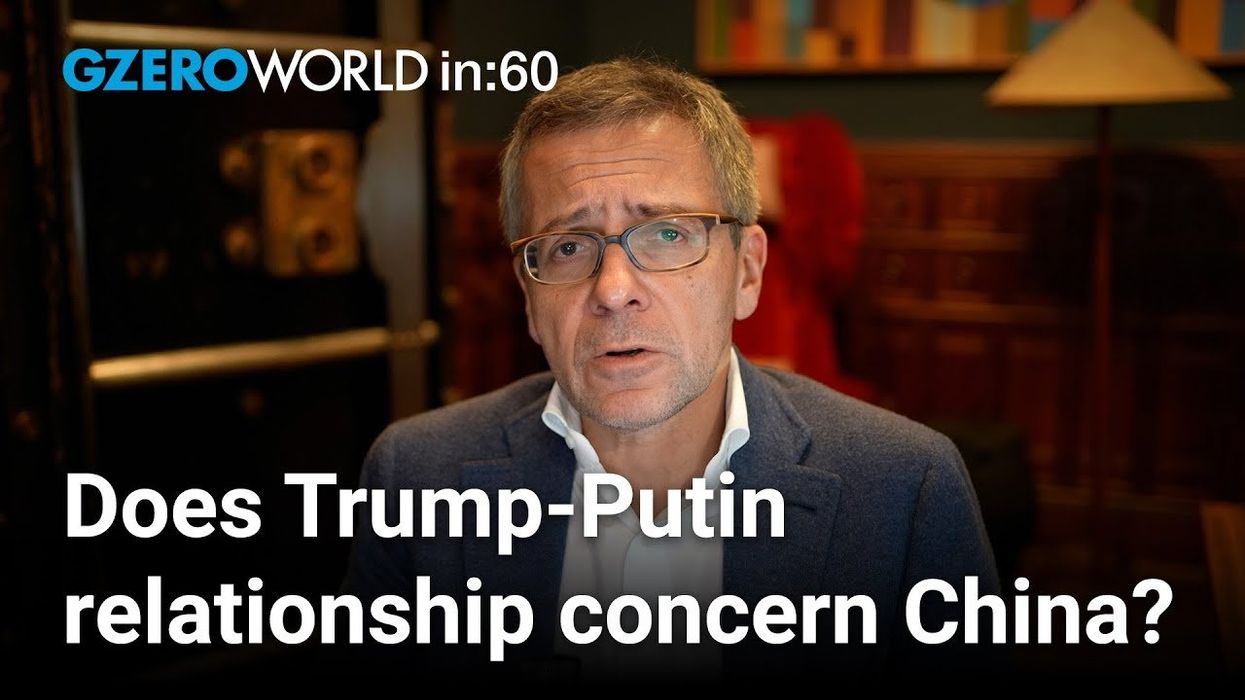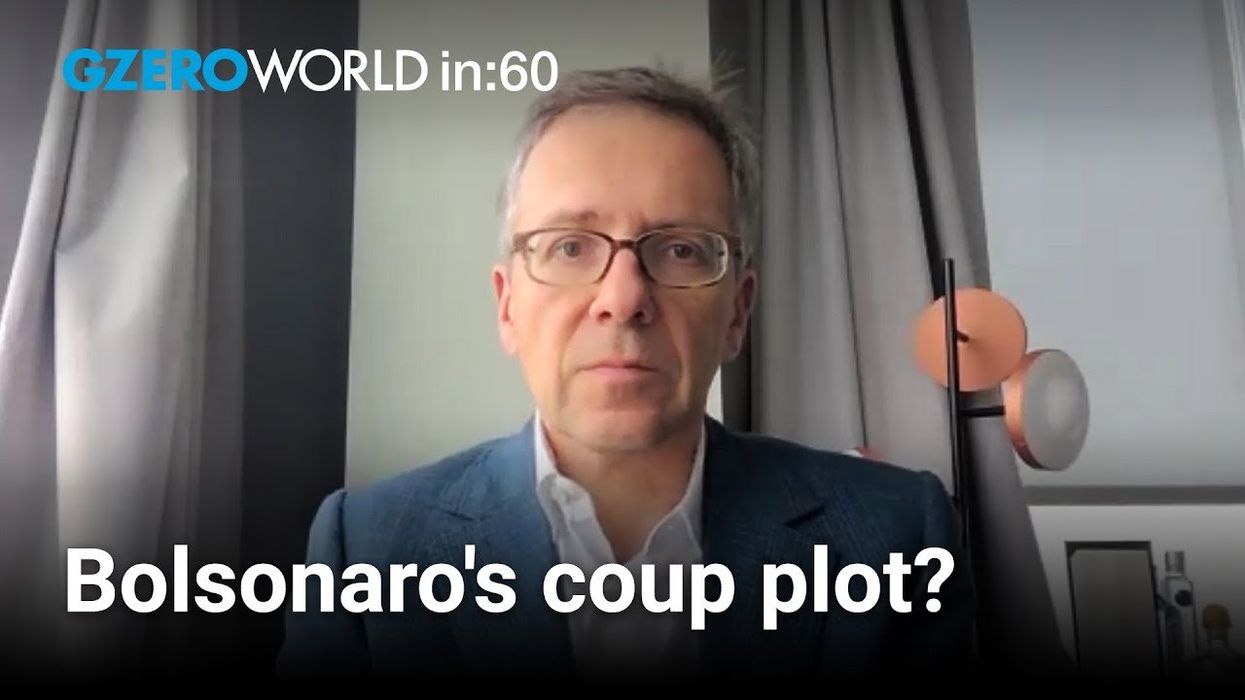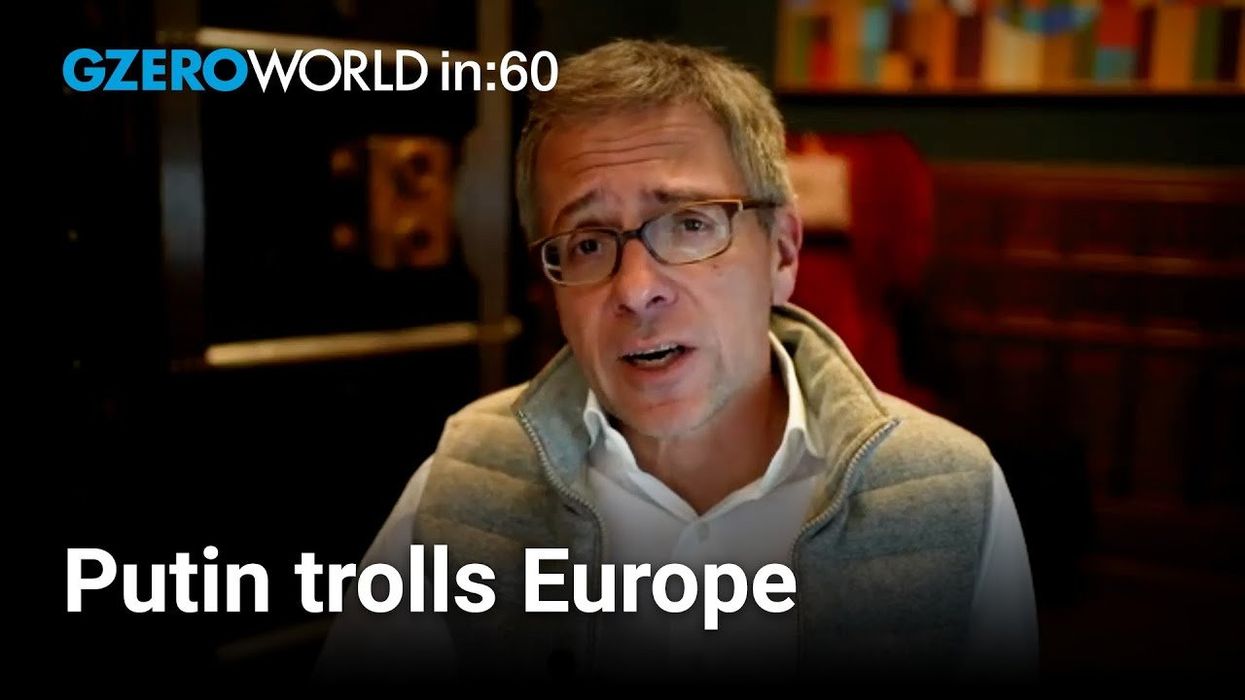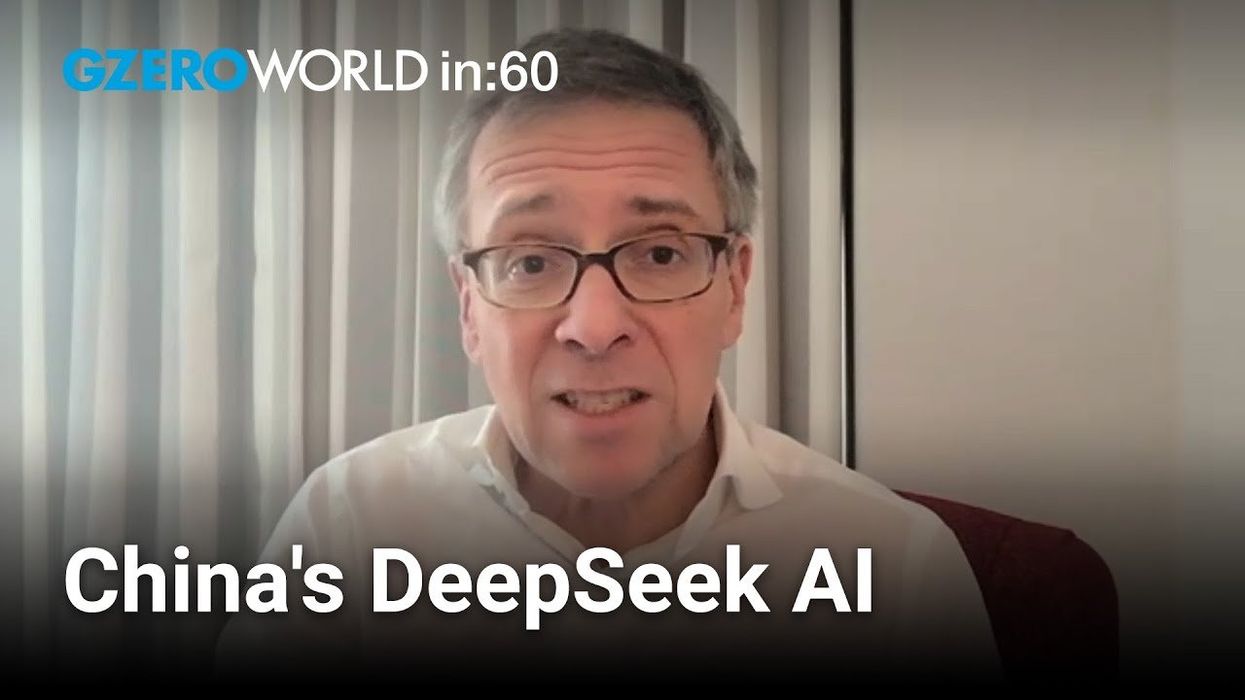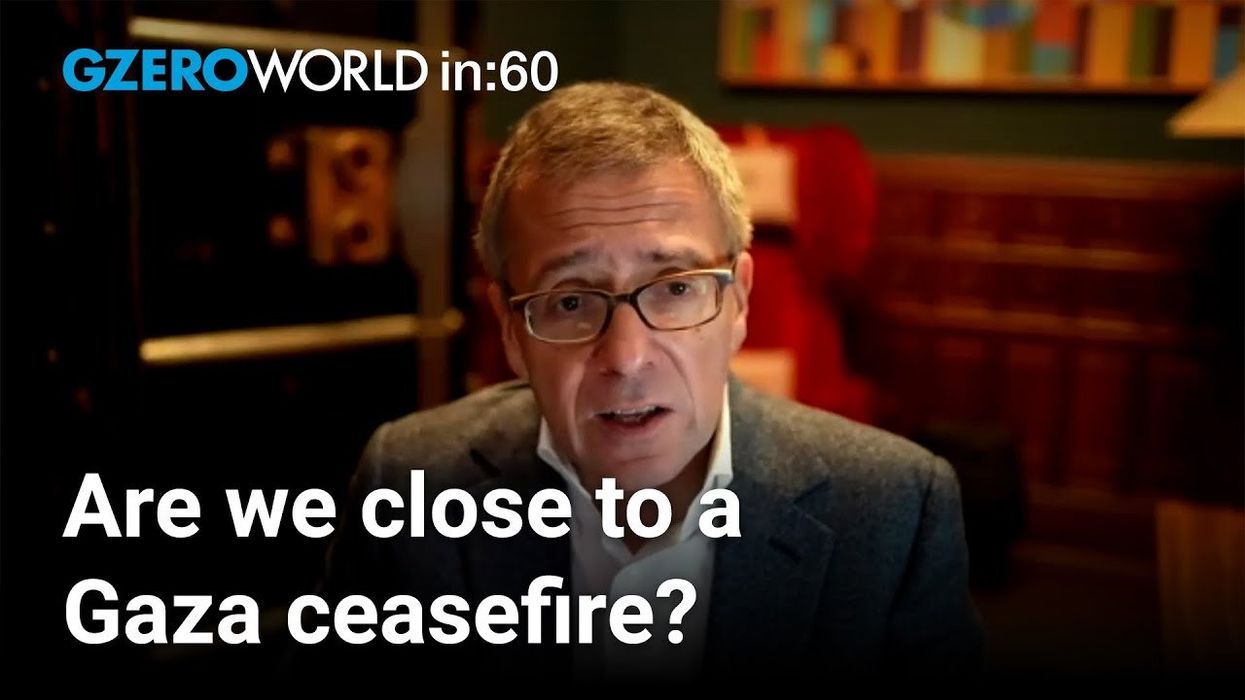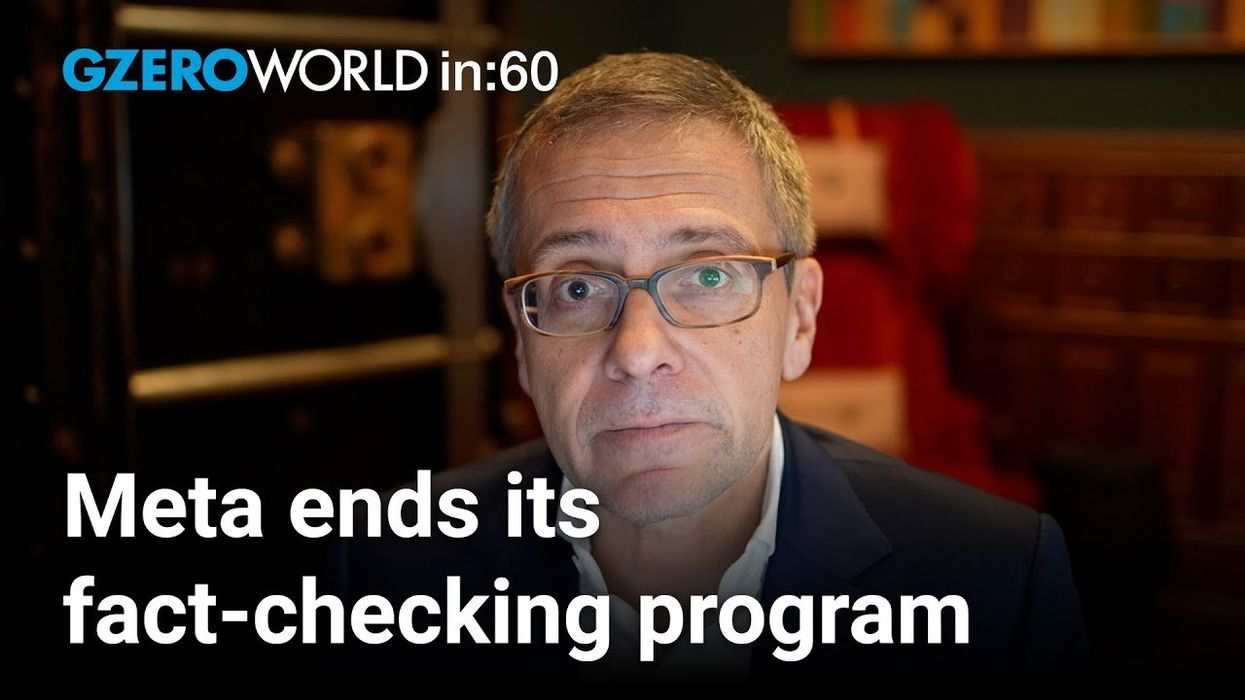VIDEOSGZERO World with Ian BremmerQuick TakePUPPET REGIMEIan ExplainsGZERO ReportsAsk IanGlobal Stage
Site Navigation
Search
Human content,
AI powered search.
Latest Stories
Sign up for GZERO Daily.
Get our latest updates and insights delivered to your inbox.
Global Stage: Live from Davos
WATCH
Who poisoned Russian oligarch Roman Abramovich? Does Russia's invasion of Ukraine mark the end of globalization? Will Shanghai's lockdown begin to shift China away from its zero-COVID policy? Ian Bremmer shares his insights on global politics this week on World In :60.
First, who poisoned Russian oligarch Roman Abramovich?
Yeah, it's quite a story involved in the Russia-Ukrainian negotiations, and apparently claimed that he was poisoned. And it's interesting, he is, of course, a very well-known Russian oligarch. He's made his billions of dollars, purely because of the support and alignment with President Putin. And he has been fairly public in his concern with opposition to the war. Indeed, one of the reasons why some of the sanctions have been more limited against him than they would've been is because Zelensky, the Ukrainian President, reached out to the Biden administration and said, "This guy's actually being useful to us, and so it would be, you don't want to hit him too hard." And clearly, the Kremlin is angry about that. And so, I have no intelligence at all about who would've been responsible for his poisoning, but if it happened, the list from the Kremlin would be as long as my arm.
Does Russia's invasion of Ukraine mark the end of globalization?
No, but it marks the end of globalization for Russia. And even if we're able to get to a ceasefire, even if we can get a frozen conflict in Ukraine, and increasingly that does look likely to me, in part because the Russian military performance on the ground in Ukraine has been so abysmal and there isn't the general mobilization and negotiations are increasingly reflecting a climbdown from the Kremlin from the military aims that they originally had when they thought they were going to get to Kyiv and take over in a relatively short order. But that's very different from the idea that sanctions will be removed. And even if you unfroze the Kremlin's assets, which I think you could do if you had a negotiated settlement and all the Russian troops verifiably moved out of Ukrainian territory, or very, very far from that, but you're not going to get the Europeans willing to actually invest in Russia going forward. You're not going to see the Americans or the Europeans say, "No, okay, we're comfortable now with Nord Stream 2 or with getting oil and coal and gas from Russia."
So I believe that Russia's relationship with the West, with the advanced industrial economies, is broken irrevocably, and that's a really big deal. The broader question is to what extent that also starts to disalign China more from the advanced industrial economies as well. Now if that were to happen, you'd say that's a tipping point against globalization. We are not there right now. I hope that doesn't happen because the interdependence is enormously important, not just for the global economy, but also for the avoidance of war. But that's a really big question that we're going to be looking at very carefully in the coming weeks.
So finally, will Shanghai's lockdown begin to shift China away from its zero-COVID policy?
Maybe at the margins, but I don't see it. Keep in mind that Xi Jinping really believes that the Americans are massively irresponsible for allowing a million people to die during COVID, and the fact that the Chinese economy is taking a huge hit and a lot of Chinese citizens are being massively inconvenienced by Shanghai being locked down, and it's the biggest city in China. Sothis is a huge deal. And this is after the Port of Shenzhen and the city was closed and Jilin and other places across China.
But Xi Jinping's position is, this zero-COVID policy, it's my policy. I implemented it, and I'm stopping the Chinese from dying. And what we are seeing is that, once they implement a complete lockdown, you very quickly go from symptomatic cases to asymptomatic cases because they're getting much more clarity and transparency in exactly where the COVID has spread, and then they're shutting it down. And the impact on that is, of course, I mean limitations on individual rights and liberties, and it's also a huge economic hit in the country. And it wouldn't surprise me, we're not going to see 5.5% growth, nothing close to that in China this year. But zero-COVID is going to stick, and that's going to be a big problem for the Chinese continually until they get mRNA vaccines and therapeutics that work at scale. They're not close to that right now.
Keep reading...Show less
More from ask ian
Trump–Zelensky meeting at Mar-a-Lago
December 29, 2025
Is the US heading toward military strikes in Venezuela?
December 22, 2025
Trump, loyalty, and the limits of accountability
December 16, 2025
Notre Dame, politics, and playing by their own rules
December 08, 2025
Trump threatens regime change in Venezuela
December 02, 2025
Is Trump’s trade strategy backfiring abroad?
November 25, 2025
Ian stands in line for a bagel, the internet melts down
November 21, 2025
Could Trump have handled the Epstein issue any worse?
November 17, 2025
Democrats divided over government shutdown deal
November 11, 2025
Zohran Mamdani and America's political future
November 04, 2025
Trump, Xi, and the new US–China standoff
October 14, 2025
US-China AI race: Dueling strategies and potential risks
October 07, 2025
Trump shifts on Russia: From carrots to sticks in Ukraine war
September 30, 2025
Trump’s UN speech: Sovereignty, security, and ending wars
September 23, 2025
Israel attacks and targets Hamas leadership in Qatar
September 10, 2025
US strike on vessel from Venezuela
September 03, 2025
Trump pulls US out of UNESCO, again
July 22, 2025
Trump announces new plan to arm Ukraine
July 15, 2025
Are NATO allies aligned on Iran?
June 24, 2025
Will Iran’s regime survive?
June 18, 2025
Trump-Musk rift over Trump's "big, beautiful bill"
June 04, 2025
What is Trump after in his latest Gulf states tour?
May 13, 2025
Why Mark Carney’s victory won’t heal the US-Canada rift
April 29, 2025
Trump tariff is starting a US-China trade war
April 08, 2025
What if Japan & South Korea sided with China on US tariffs?
April 01, 2025
US travel warnings issued by its closest allies
March 25, 2025
US-Canada trade war helps Mark Carney's election prospects
March 11, 2025
Why Trump won’t break the Putin-Xi alliance
March 04, 2025
Will Trump & Musk punish Brazil over Bolsonaro indictment?
February 19, 2025
Putin trolls Europe about "the master" Trump
February 04, 2025
DeepSeek puts US-China relations on edge
January 30, 2025
Gaza ceasefire likely as Biden and Trump both push
January 14, 2025
Meta scraps fact-checking program: What next?
January 07, 2025
GZERO Series
GZERO Daily: our free newsletter about global politics
Keep up with what’s going on around the world - and why it matters.

